The flagship RAV4 Hybrid looks tough and drives well. While it's still a segment benchmark, there's increasingly tough competition awheel.
Despite ongoing supply issues and ever-extending wait times, the Toyota RAV4 Hybrid’s popularity is still going strong in Australia.
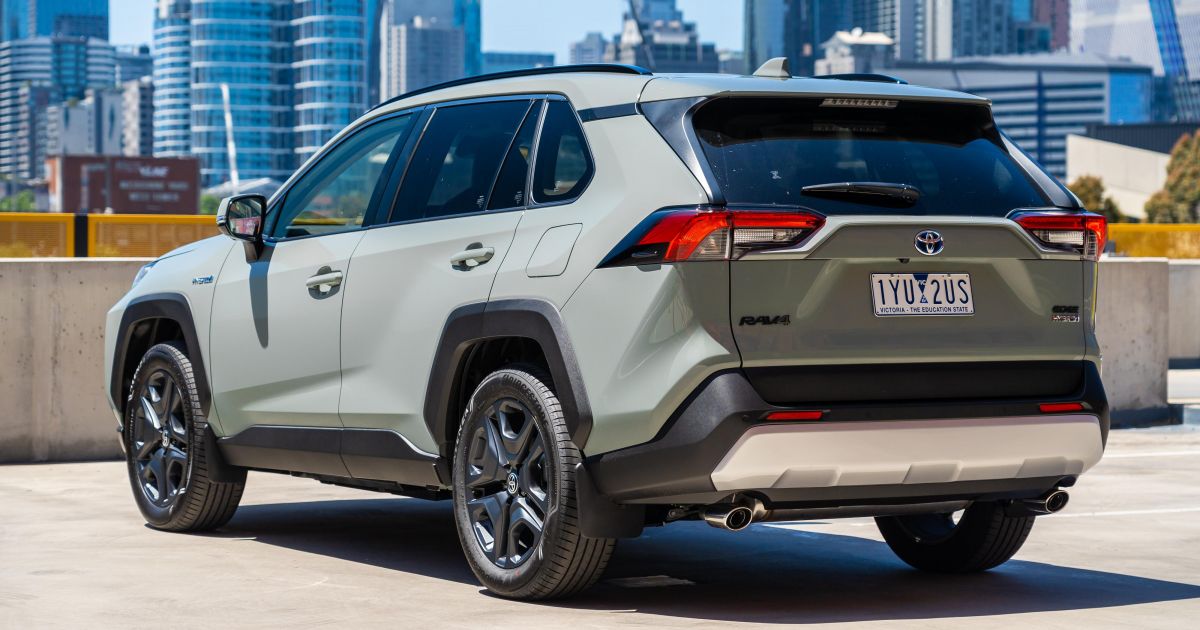
It remains Australia’s favourite SUV according to VFACTS sales data, with 27,435 units registered to November 30 2023, just ahead of the Tesla Model Y (27,418 units).
That’s despite the overwhelming majority of orders being for the RAV4 Hybrid, which depending on variant, could have you waiting 12-18 months for delivery.
The flagship 2024 Toyota RAV4 Edge AWD Hybrid tested here is one of the more in-demand versions that have Australian customers queuing up around the block.
WATCH: Paul’s video review of the RAV4 XSE 2WD HybridNow nudging the $60,000 barrier, the flagship RAV4 in Australia gets a more rugged look and all the tech Toyota can throw at it; but it’s also up against an ever-growing list of rivals and now is priced against premium competitiors.
Does the RAV4 Hybrid still have the Edge? Teehee…
How much does the Toyota RAV4 Edge AWD Hybrid cost?
The RAV4 line-up received some minor price increases as of July 1, 2023 – see below for details.
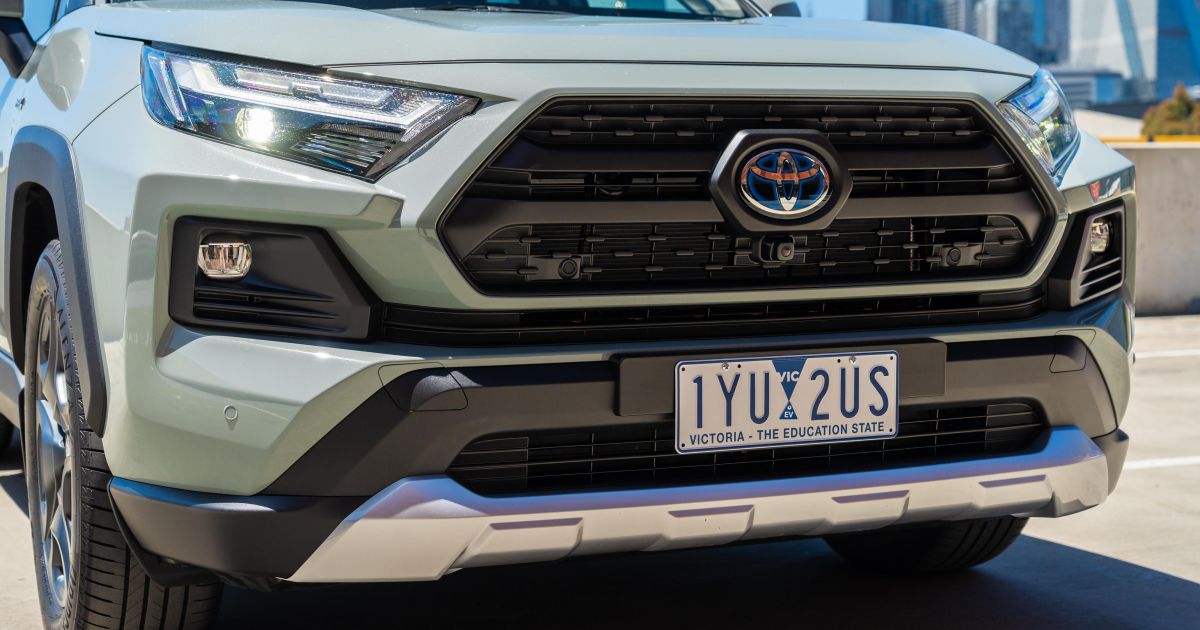
Toyota RAV4 pricing:
Toyota RAV4 GX 2WD: $39,760 (+$1710)Toyota RAV4 GX 2WD Hybrid: $42,260 (+$1710)Toyota RAV4 GXL 2WD: $43,310 (+$1710)Toyota RAV4 GX AWD Hybrid: $45,260 (+$1710)Toyota RAV4 GXL 2WD Hybrid: $45,810 ($1710)Toyota RAV4 GXL AWD Hybrid: $48,810 (+$1710)Toyota RAV4 Cruiser 2WD: $48,910 (+$1710)Toyota RAV4 XSE 2WD Hybrid: $49,585(+$1710)Toyota RAV4 Cruiser 2WD Hybrid: $51,410 (+$1710)Toyota RAV4 XSE AWD Hybrid: $52,585 (+$1710)Toyota RAV4 Cruiser AWD Hybrid: $54,410 (+$1710)Toyota RAV4 Edge AWD: $56,230 (+$1710)Toyota RAV4 Edge Hybrid AWD: $58,360 (+$1710)Prices exclude on-road costs
To see how the RAV4 shapes up against its rivals, use our comparison tool.
What is the Toyota RAV4 Edge AWD Hybrid like on the inside?
Earlier this year the RAV4 received some tech upgrades at the upper end of the range, and they do help to elevate the interior a bit.
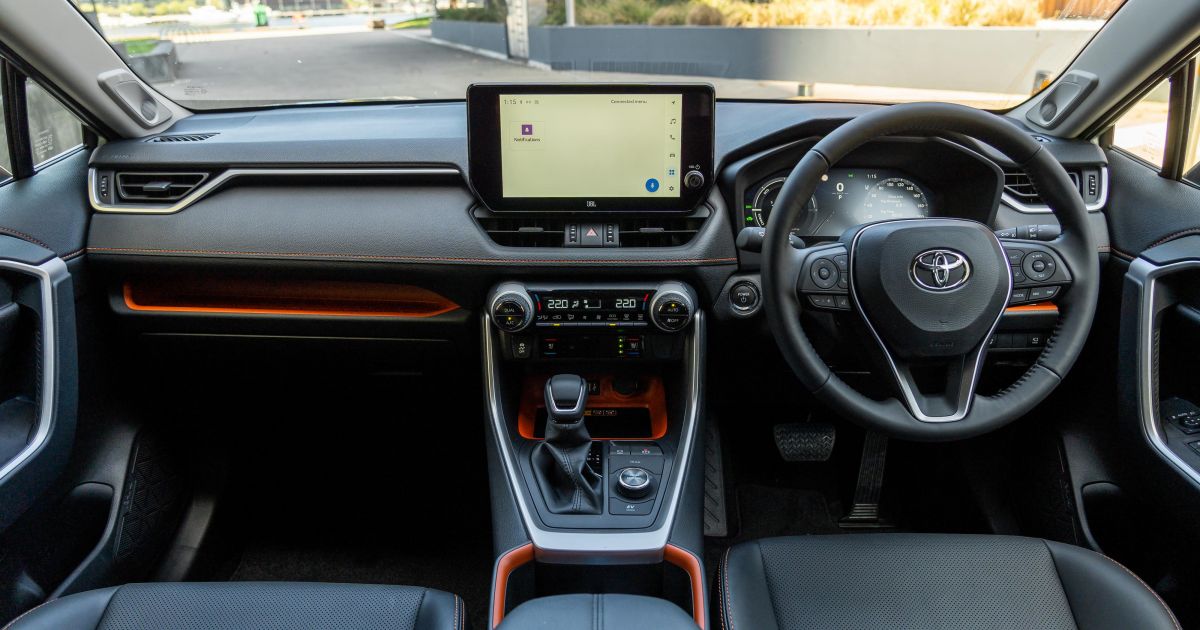
Your attention is quickly drawn to the larger new 10.5-inch touchscreen plonked atop the dash, which is running Toyota’s latest infotainment interface and comes standard with a Toyota Connected Services subscription.
It’s a big improvement on the dated predecessor system; although, the basic design may not have the wow factor of some other brands. In fairness, the Lexus interface is pretty much the same in vehicles vastly more expensive.
Wireless Apple CarPlay is a big plus with this new-generation infotainment system, and will likely be the go-to function for most owners. As we’ve experienced with other Toyota models with this infotainment system, the wireless smartphone mirroring connection works quickly and reliably – plus the higher resolution display is much nicer.
The standard nine-speaker JBL premium audio system is also worth calling out for its great clarity and depth.
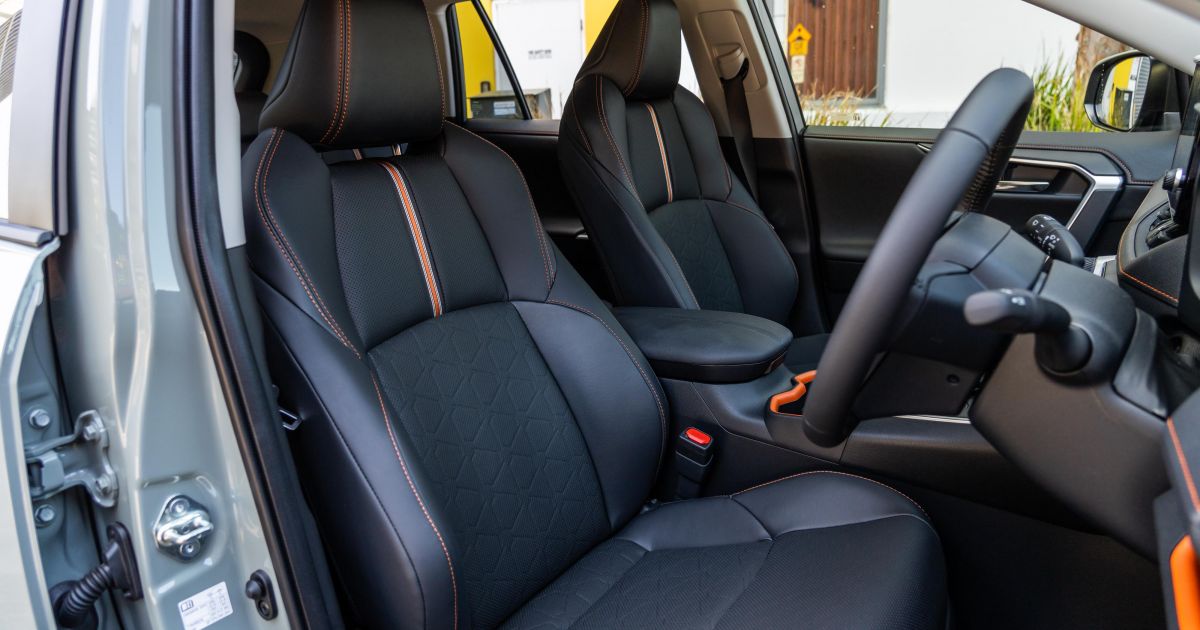
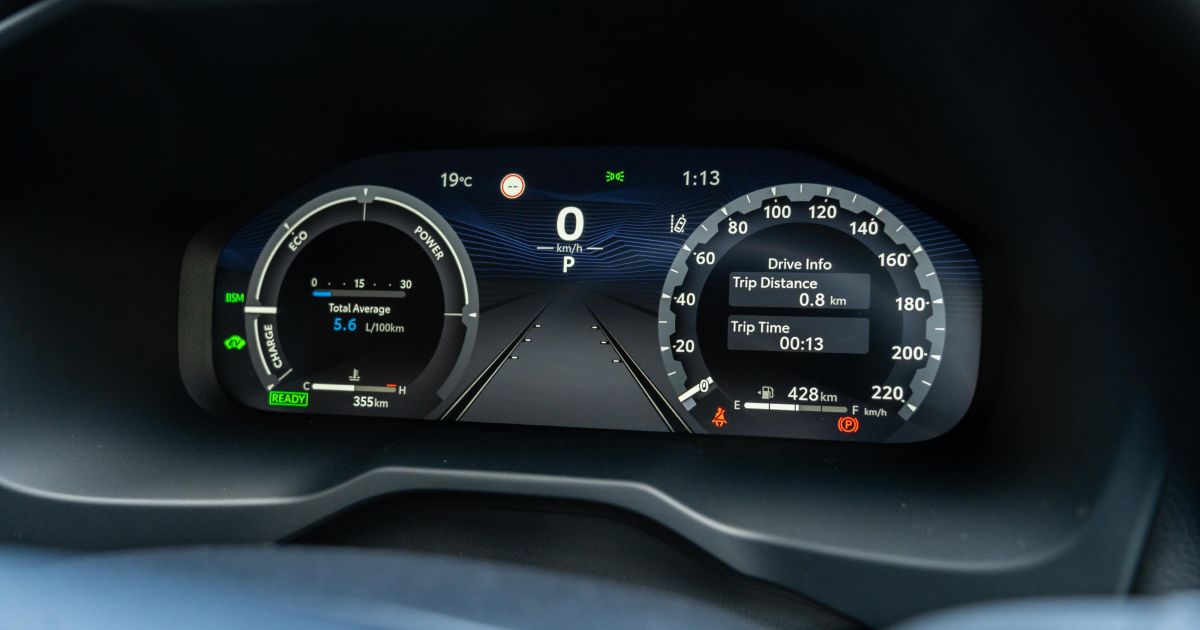
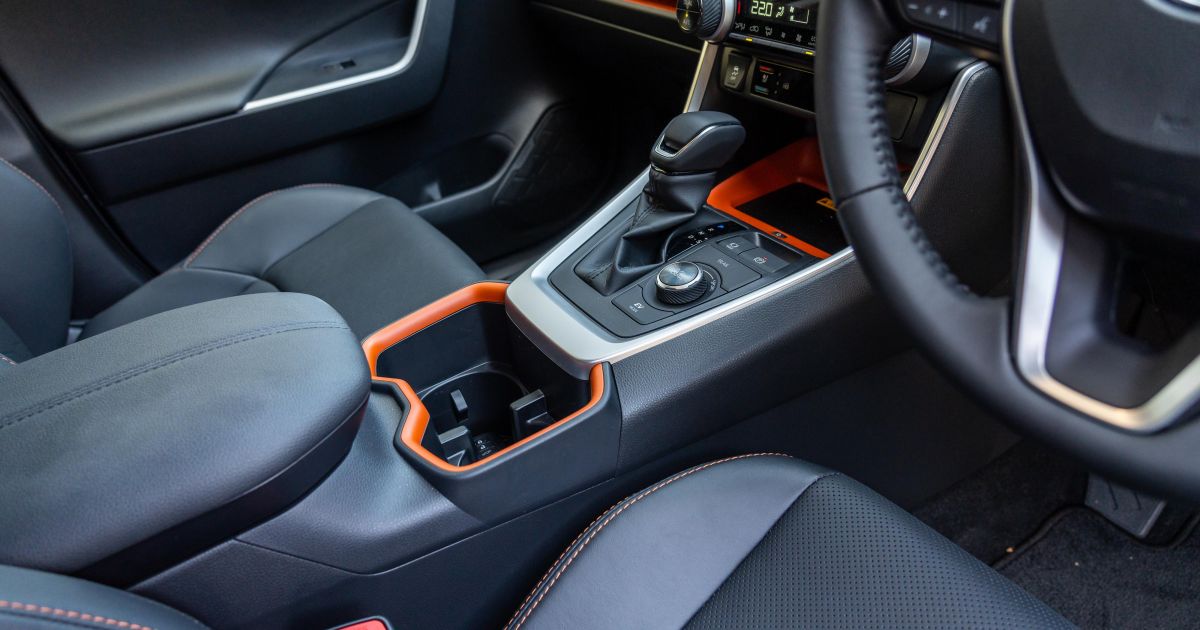
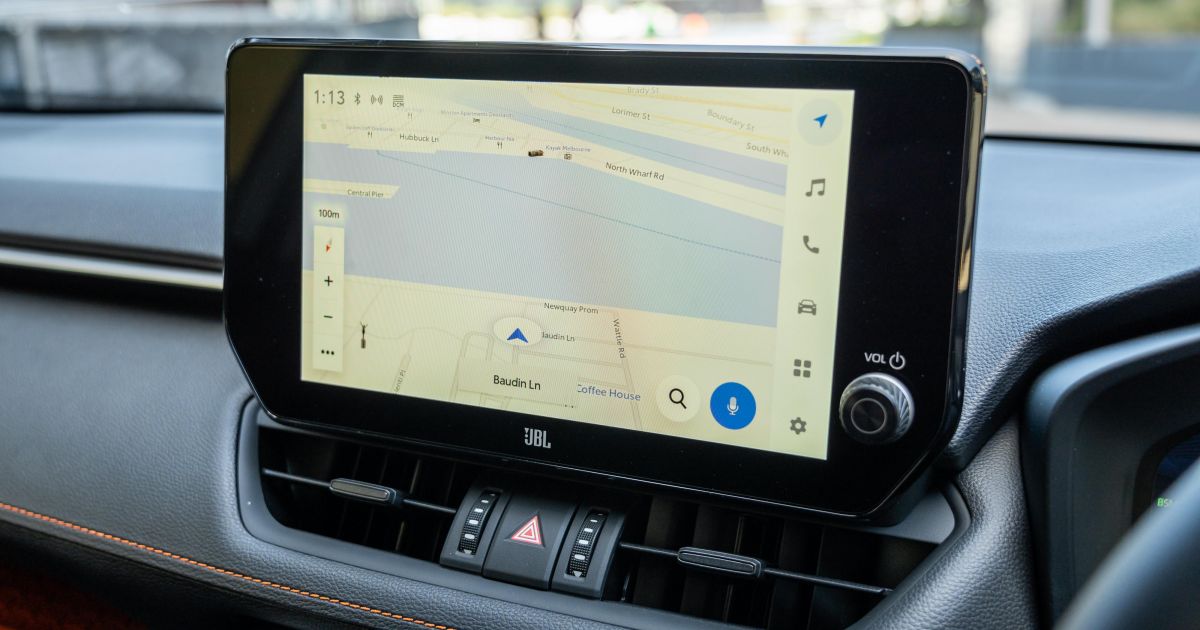
Ahead of the driver and behind the carryover multifunction steering wheel, is a swish new 12.3-inch digital instrument cluster that has slowly been filtering throughout the Toyota range.
While offering good configurability and pretty crisp graphics, the Toyota’s digital driver’s panel can’t quite match the snappy response of VW Group systems, and can be a little confusing to wade through and adjust things.
There’s an array of widgets and readouts that you can slot into each dial, as well as in the centre section. You can also choose layouts that have two dials, a single dial, or a minimised layout. It’s actually more sophisticated than the display used in even the highest of Lexus models right now. Strange…
Comfort up front is good. The generously padded and bolstered seats offer good support from all angles, and they’re both power adjustable, with the driver’s pew offering memory presets. I will say; however, that I had numerous passengers complain that the height adjustment of the front seat was lacking, with taller occupants feeling quite high.
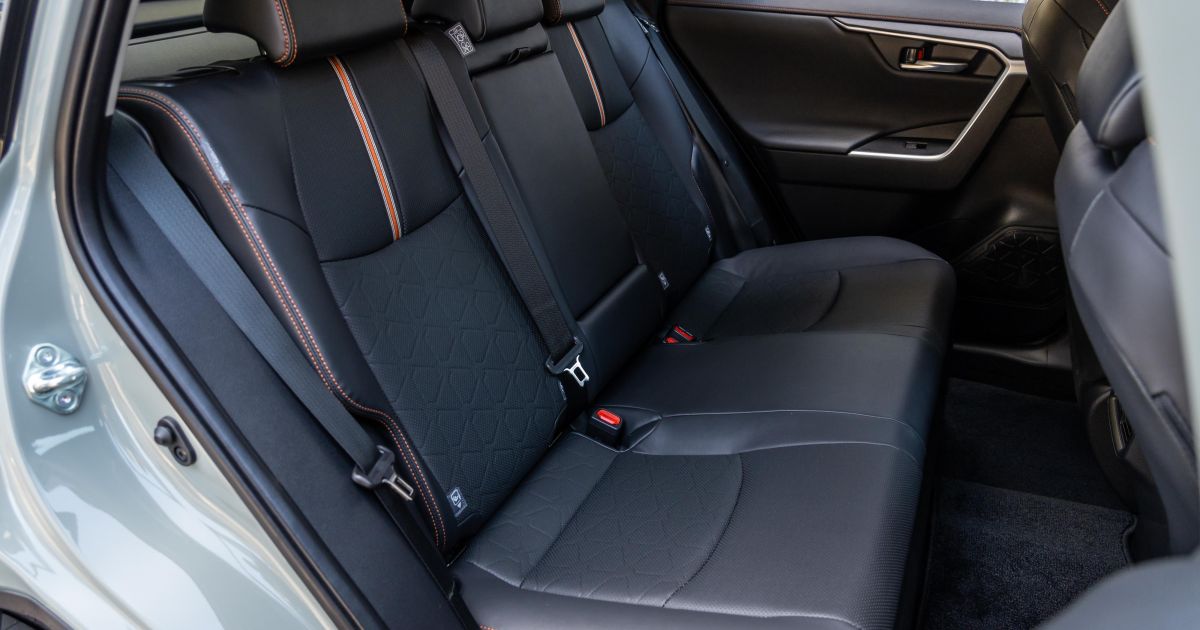
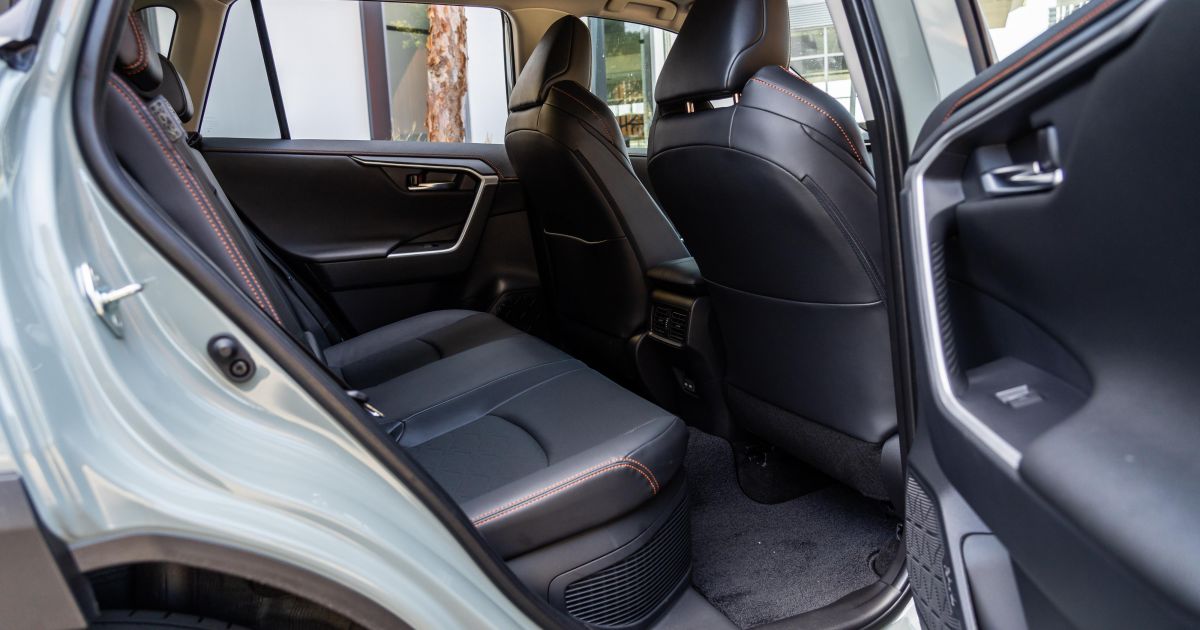
Space in the back seat is another RAV4 strong point, with its boxy proportions making for one of the most practical second rows in class. Adults can comfortably fit behind adults, and kids are basically swimming in there.
Head, leg and knee room are all at the upper end of the segment, and there’s a good level of amenities too – if not quite at the luxury levels offered by some top-end rivals or premium alternatives.
Rear air vents feature, for example, but there’s no third zone of climate control. There’s only one map pocket behind the passenger seat, and none behind the driver. At least the door trims are the same, soft-touch type that appear up front.
There’s a fold-down centre armrest with cupholders and the requisite ISOFIX and top-tether points for child seats, but really that’s about it. You can’t option a panoramic sunroof on the Edge Hybrid like you can in the standard petrol either, instead you get an old-school small electric moonroof.
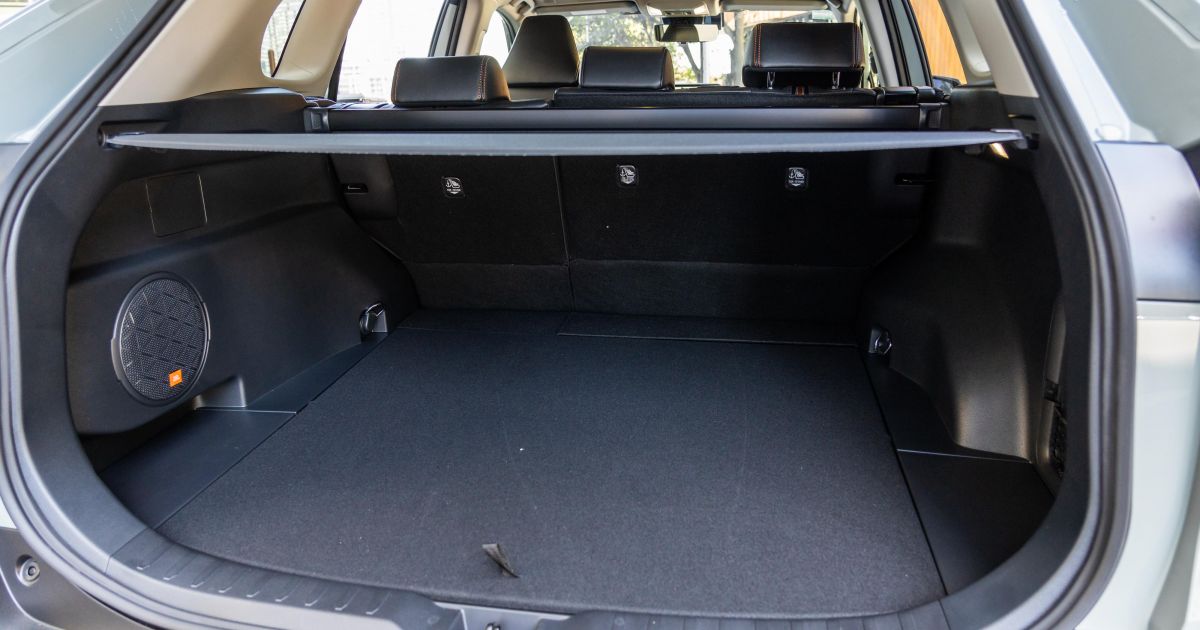
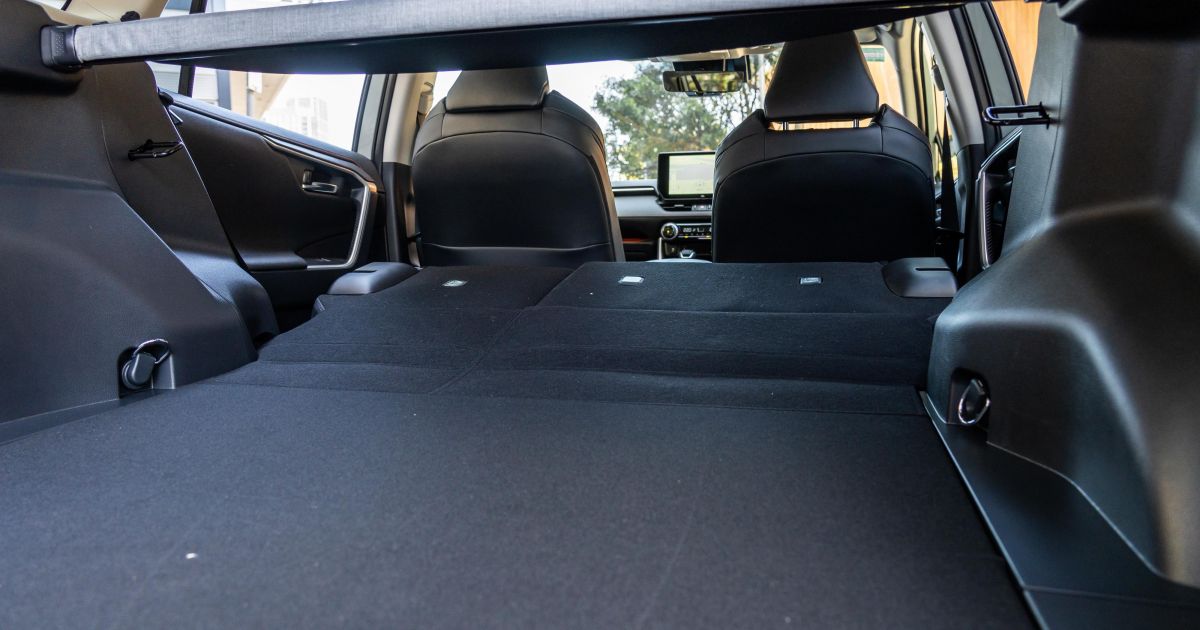
Toyota quotes 542-580 litres of cargo capacity with five seats in use, and while there’s no maximum figure with the rear seatbacks folded, it’s a pretty big, square and practical space.
There are also remote release levers in the boot, and the rear bench splits 60:40. A temporary spare wheel lives under the boot floor.
What’s under the bonnet?
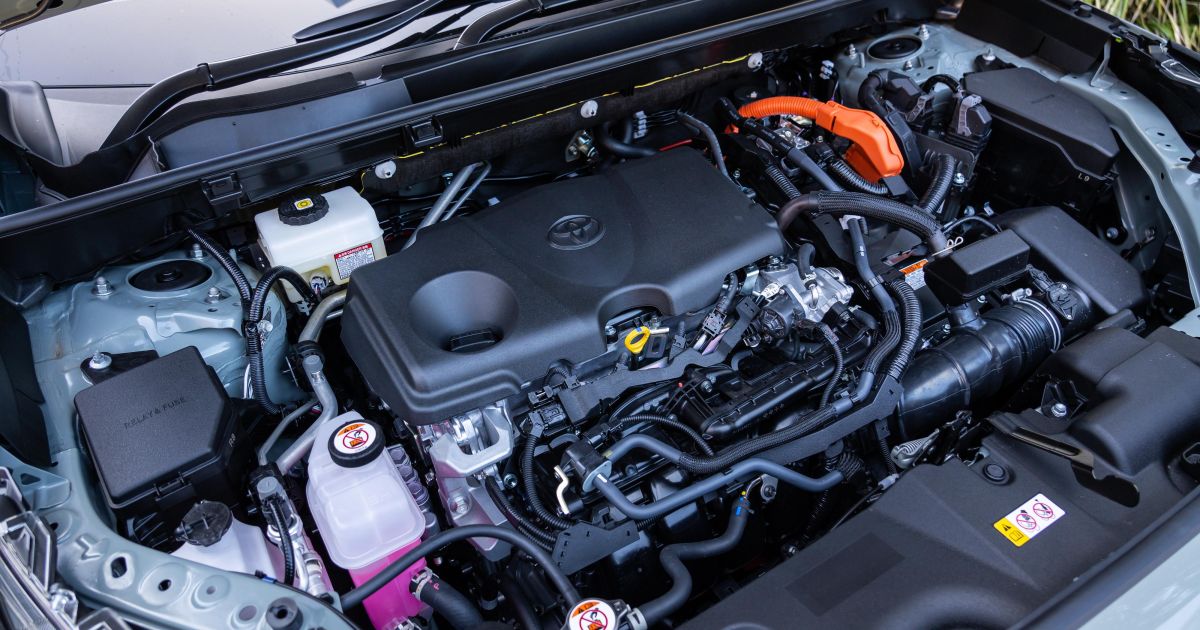
| Model | Toyota RAV4 AWD Hybrid |
| Engine | 2.5L 4cyl petrol + 2 x electric motors |
| Power | 131kW + 88kW + 40kW – 163kW combined |
| Torque | 221Nm + 202Nm + 121Nm |
| Transmission | e-CVT |
| Driven wheels | All-wheel drive |
| Weight | 1760kg (kerb) |
| Fuel economy (claim) | 4.8L/100km |
| Fuel economy (observed) | 5.7L/100km |
| Fuel tank size | 55L |
| Fuel requirement | 91 RON |
How does the Toyota RAV4 Edge AWD Hybrid drive?
I’ve driven a few RAV4 Hybrids in my time, and this Edge AWD reminded me of why so many people love them.
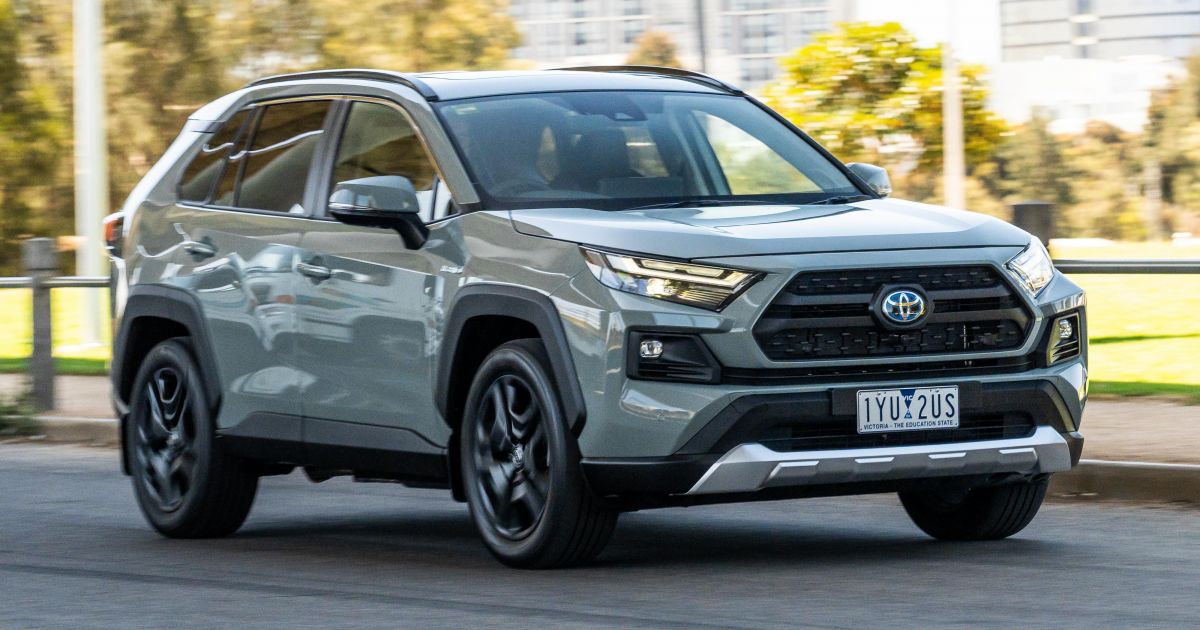
Toyota’s Hybrid Synergy Drive technology has been refined over the last couple of decades, and the appeal of the RAV4 Hybrid is that you can hop in and go like any other combustion-engined vehicle, and the vehicle does everything for you.
You don’t have to faff around with drive modes – even though you can flick through a few – just leave it in normal and let the drivetrain do its magic to reduce your fuel bill. In traffic and other low-speed situations the RAV4 will do the bulk of driving in electric mode, signified by a little EV symbol that flashes up in the cluster.
Prod the throttle harder and the petrol engine fires to life, and the handover between power sources is pretty seamless; although, there’s a lot more noise from the rather coarse Atkinson cycle petrol motor.
It makes you want to drive it in a more sedate manner despite its beefy 163kW system power output. And really let’s face it, this isn’t a performance car – while the RAV4 AWD Hybrid quotes 1kW more power than a VW Tiguan 162TSI, the Toyota’s 8.4-second 0-100km/h claim (according to UK specs) is 1.5s slower than its German rival.
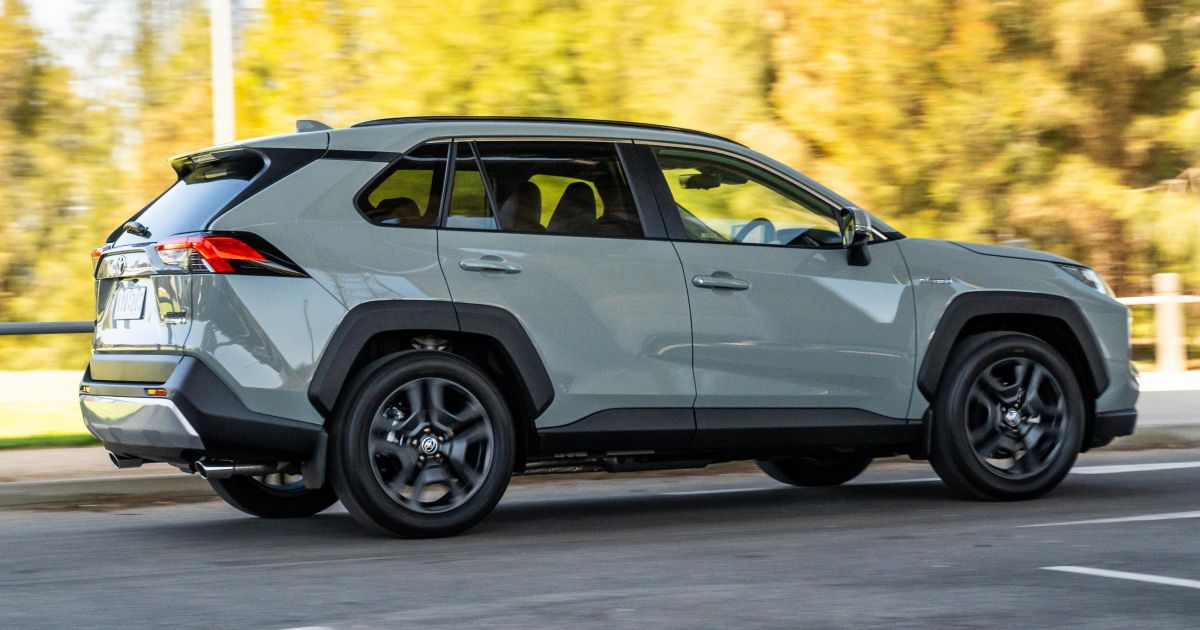
The RAV4 Hybrid is best used as a comfortable, efficient family commuter. Drive it with measure and keep your inputs smooth, and you’ll be rewarded with a very fluid and connected drive without performance theatrics.
I love the buttery smooth steering, responsive handling, and the cushy ride despite the Edge riding on larger 19-inch alloy wheels. Fun fact; the Bridgestone Alenza rubber shod around the rims is the same type used on luxury SUVs like the BMW X5 and Volkswagen Touareg .
While not pitched as a sporty offering like a Mazda CX-5 or R-Line versions of the VW Tiguan, the RAV4 has a chuckable feel in corners with controlled body lean and keen turn-in which makes it feel quite connected.
It’s also perfectly civilised at a cruise, settling in nicely; though, not quite the benchmark for road noise insulation. The RAV4’s hybrid system also isn’t the absolute latest from Toyota, meaning its less energy-dense battery chemistry and small electric motors can’t engage EV mode on the highway often like a Yaris Cross or Corolla Cross can.
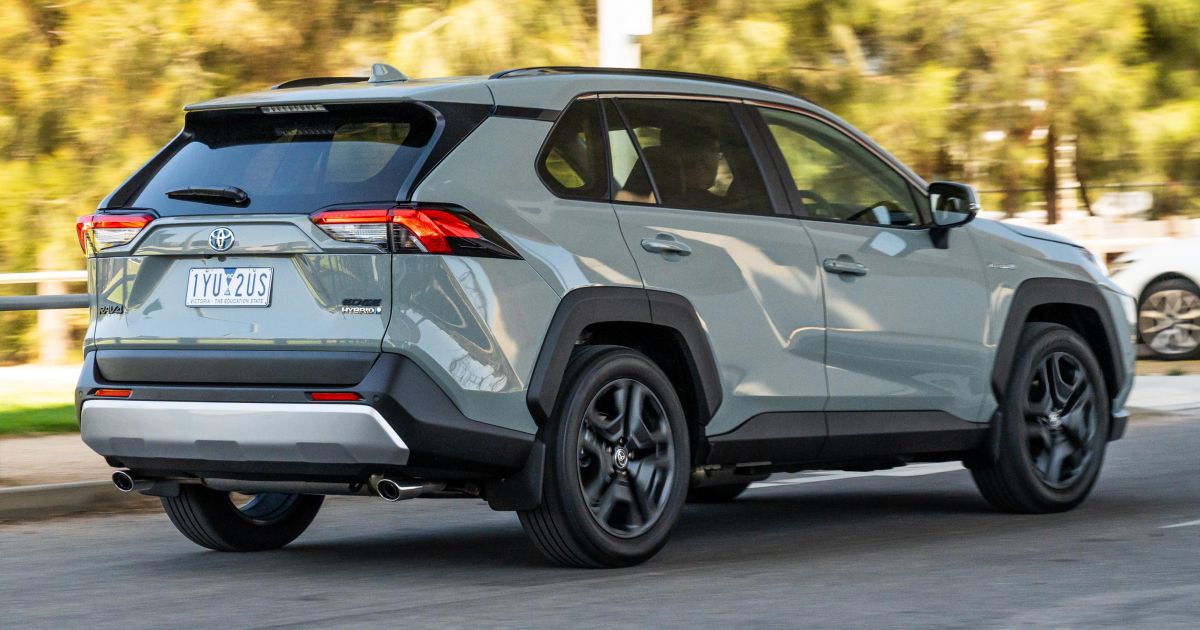
The latest suite of Toyota Safety Sense assistance features are all standard, and unlike some systems past, the RAV4’s array of ‘techy’ assists are on hand to take the load off.
Of note is the very good adaptive cruise control and Lane Trace Assist functions. These facilitate semi-autonomous highway driving quite reliably, while blind-spot monitoring and rear cross-traffic alert really come in handy when navigating tight gaps in traffic or reversing out of tight spots. The Edge also gets AEB in reverse.
Toyota’s surround-view camera system offers better resolution than Mazda’s potato cams – I kid, they’re not that bad – but not a patch on what something like the GWM Haval H6 offers.
I’d also note the fact I couldn’t match the fuel consumption claim, even with a mix of conditions heavily skewed to city commuting. The best I could manage was an indicated 5.7L/100km, which is still pretty good but much closer to the likes of the GWM Haval H6 HEV and Nissan X-Trail e-Power, which both arguably offer better performance.
What do you get?
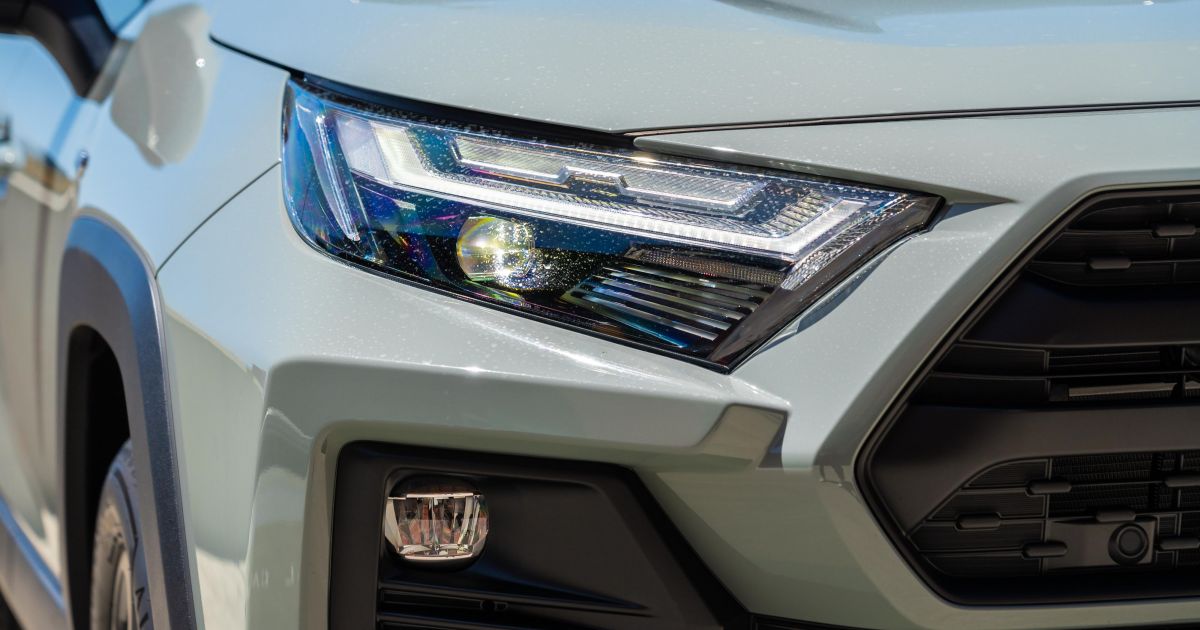

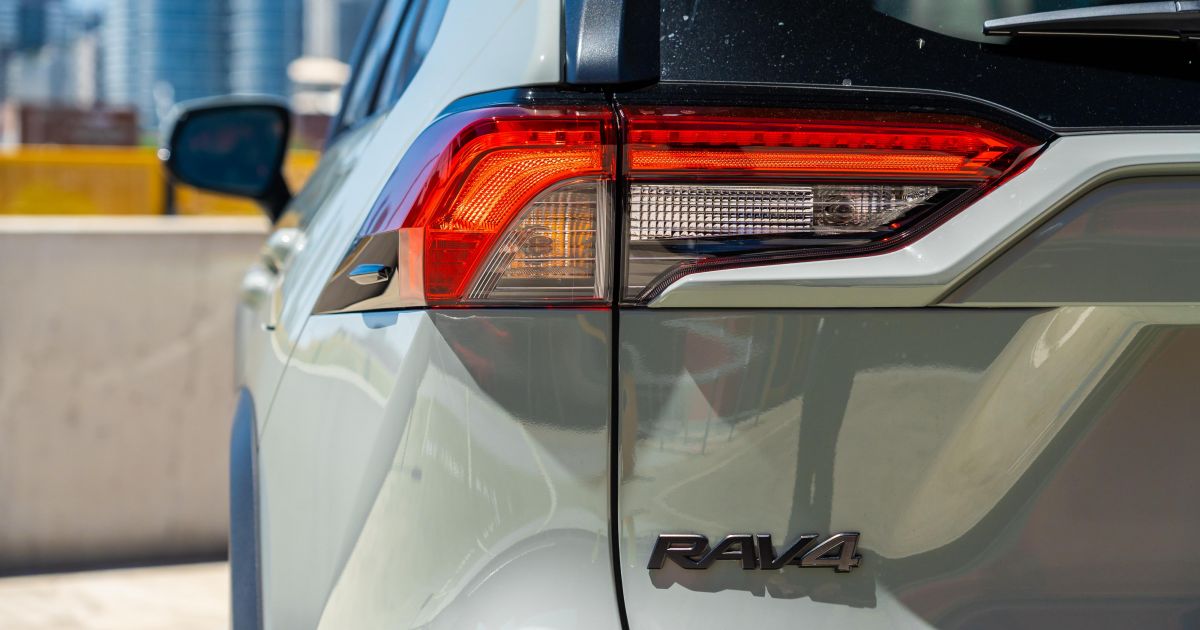

RAV4 GX highlights:
Parabolic LED headlights with auto-levellingFront LED fog lightsAutomatic high-beamAutomatic headlightsRain-sensing wipers17-inch alloy wheelsHeated, power-folding exterior mirrors8.0-inch touchscreen infotainment systemSatellite navigationDAB+ radioWireless Apple CarPlay, Wired Android AutoSix-speaker sound system7.0-inch instrument cluster display60:40 split-fold rear seats and centre armrestKeyless startLeatherette-wrapped steering wheelFront/rear carpet matsSpace saver spare tyreElectronic parking brakeLED interior lighting LED daytime running lightsRear mudflapsResin rear spoilerRear passenger air vents2 x front and 2 x rear cup holders3 x front and 2 x rear USB ports12-month subscription to Connected ServicesRAV4 GX Hybrid adds:
Projector LED headlampsDual-zone climate controlOptional full-size spare wheelRAV4 GXL adds:
18-inch alloy wheels‘Premium’ grille and bumper comboRear privacy glassLeatherette-wrapped shifterAuto-dimming rear-view mirrorDual-zone climate controlProximity entryWireless phone chargingFront mudflapsRoof railsIlluminated interior door switchesDual-level boot floor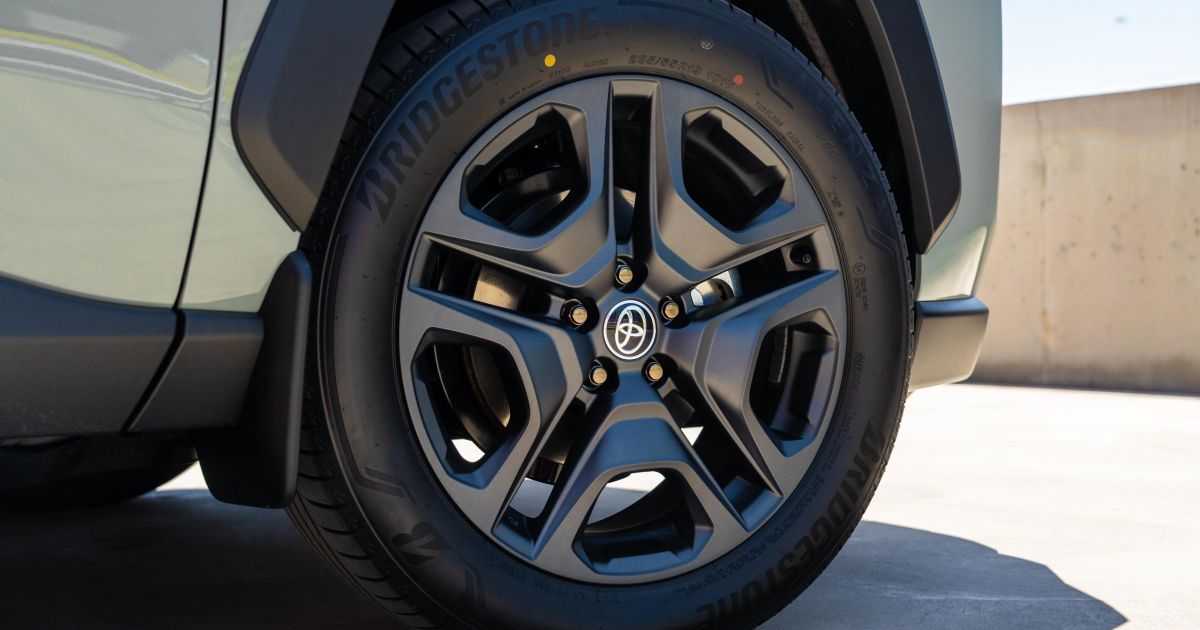
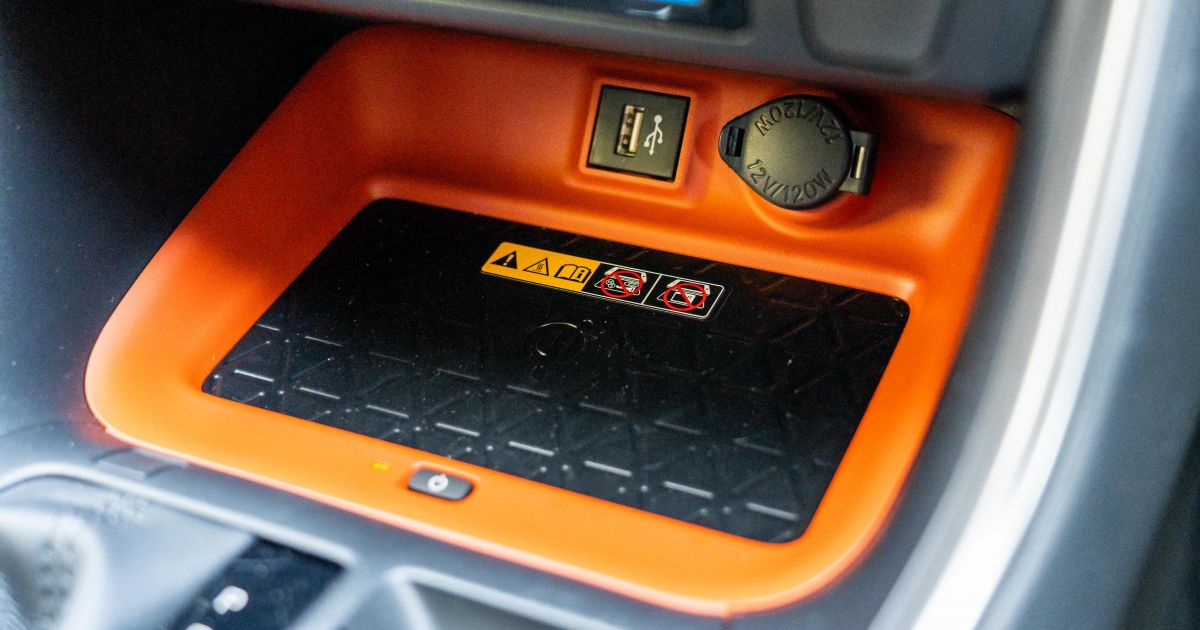
RAV4 XSE Hybrid adds:
Black exterior accentsBlack two-tone roof finish18-inch alloy wheels in gloss blackBlack headliner and pillar garnishLeather-accented door trimsAmbient lighting (model-specific)Softex ‘premium’ seat upholsteryHeated front seats10-way power adjustment with lumbar support (driver)12.3-inch digital instrument cluster10.5-inch infotainment displaySatellite navigationToyota Connected Services (1yr subscription)Projector LED headlightsPower tailgateRAV4 Cruiser adds:
19-inch alloy wheelsAuto power-folding mirrorsPower sunroof10-way power driver’s seat with memory8-way power passenger seatHeated and ventilated front seatsLeather upholsteryAmbient lighting9-speaker JBL sound systemSurround-view cameraDigital rear-view mirrorRAV4 Cruiser Hybrid adds:
18-inch alloy wheelsProjector LED headlightsRAV4 Edge adds:
19-inch machine-faced alloy wheelsModel-specific exterior stylingOff-road mode selector dialHill descent controlSoftex ‘premium’ upholsteryRear cross-traffic assist Unique Edge bumper and grilleOptions
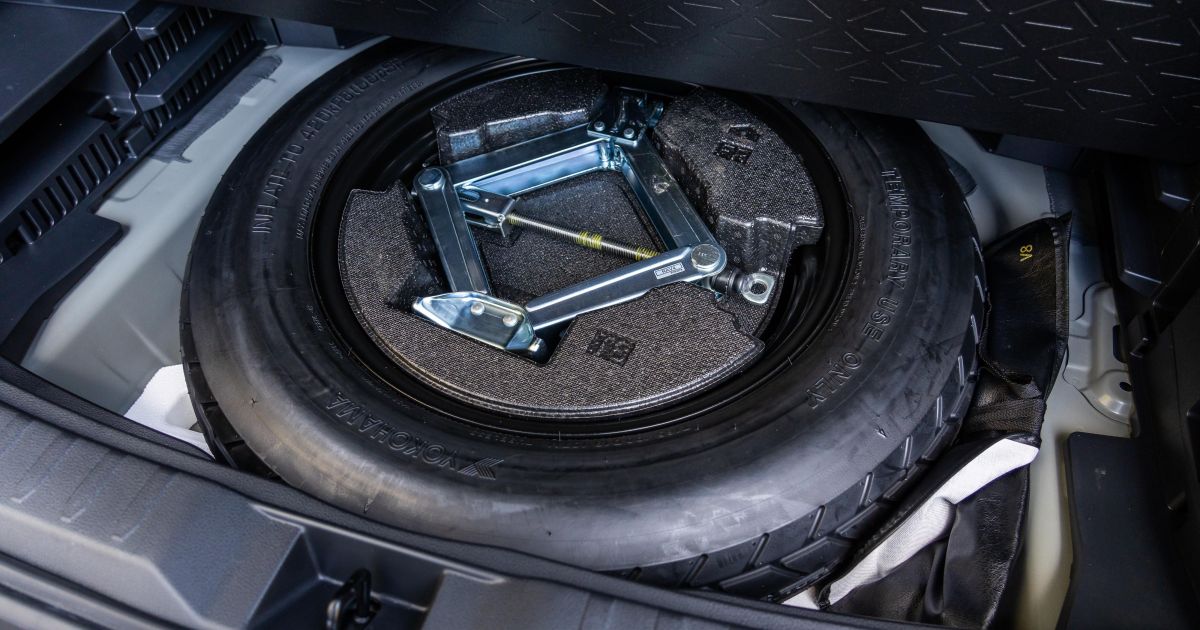 Premium paint: $675Full-size spare (GX Hybrid): $300Panoramic sunroof (Edge AWD): $1300
Premium paint: $675Full-size spare (GX Hybrid): $300Panoramic sunroof (Edge AWD): $1300
Is the Toyota RAV4 Edge AWD Hybrid safe?
The Toyota RAV4 wears a five-star ANCAP safety rating based on 2019 Euro NCAP tests.
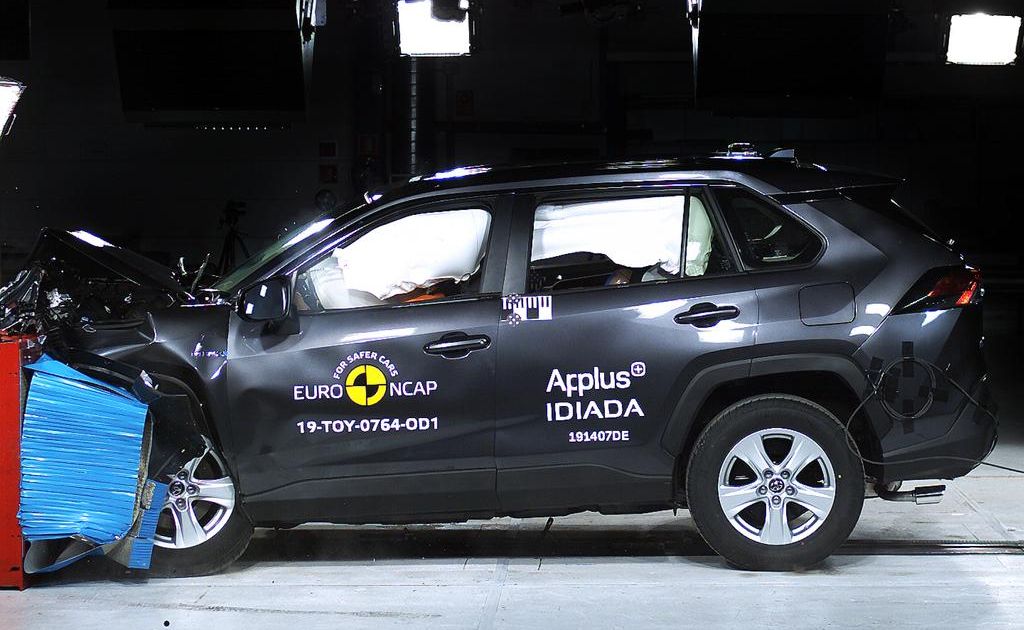
It scored of 93 per cent for adult occupant protection, 89 per cent for child occupant protection, 85 per cent for vulnerable road user protection, and 83 per cent for safety assist.
Standard safety features include:
7 airbags incl. driver’s kneeAutonomous emergency braking (AEB)Pedestrian detection (day, night)Cyclist detection (day)Intersection Turn AssistAdaptive cruise controlBlind-spot monitoringEmergency Steering AssistHill-start Assist ControlLane departure warningLane Tracing AssistRear cross-traffic alertReversing cameraParking sensors front, rearTraffic sign recognitionTrailer sway controlRAV4 Cruiser adds:
360-degree camerasRAV4 Edge adds:
AEB reverse (low speed)Rear cross traffic assistHow much does the Toyota RAV4 Edge AWD Hybrid cost to run?
The RAV4 is covered by Toyota Australia’s five-year, unlimited-kilometre warranty.
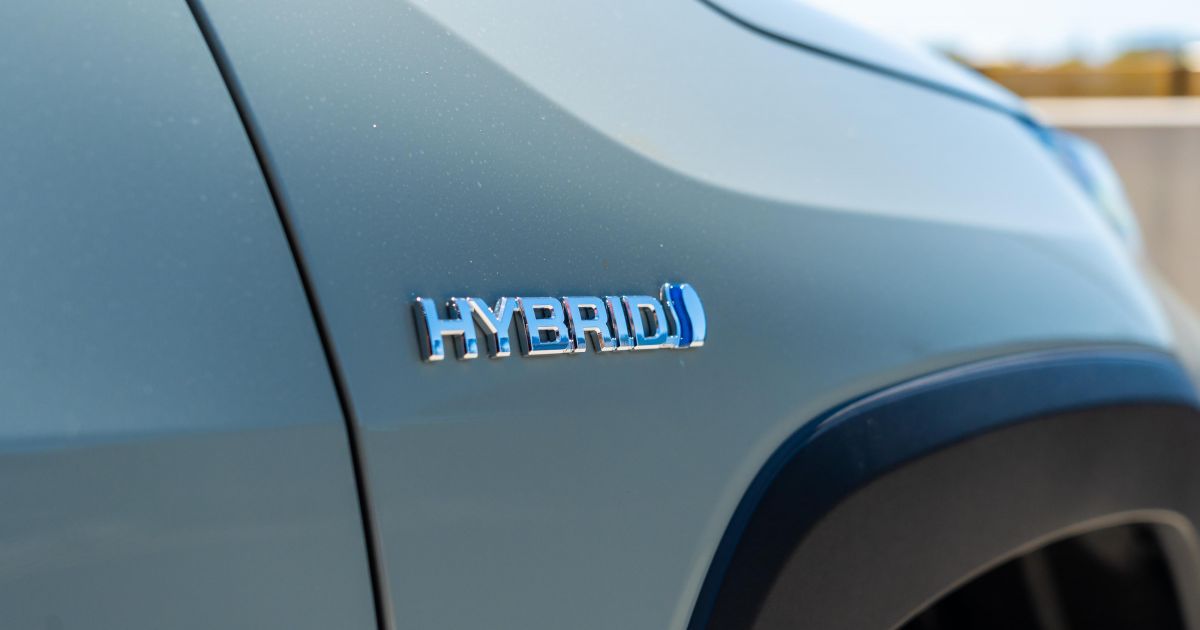
Toyota offers up to five years (60 months) or 75,000km of capped-price servicing, with intervals of 12 months or 15,000km for the RAV4.
All RAV4 variants (incl. Hybrid) cost $260 per service for the first five visits under the capped-price servicing program.
CarExpert’s Take on the Toyota RAV4 Edge AWD Hybrid
It’s very easy to see why the RAV4 has been Australia’s favourite SUV for some time.
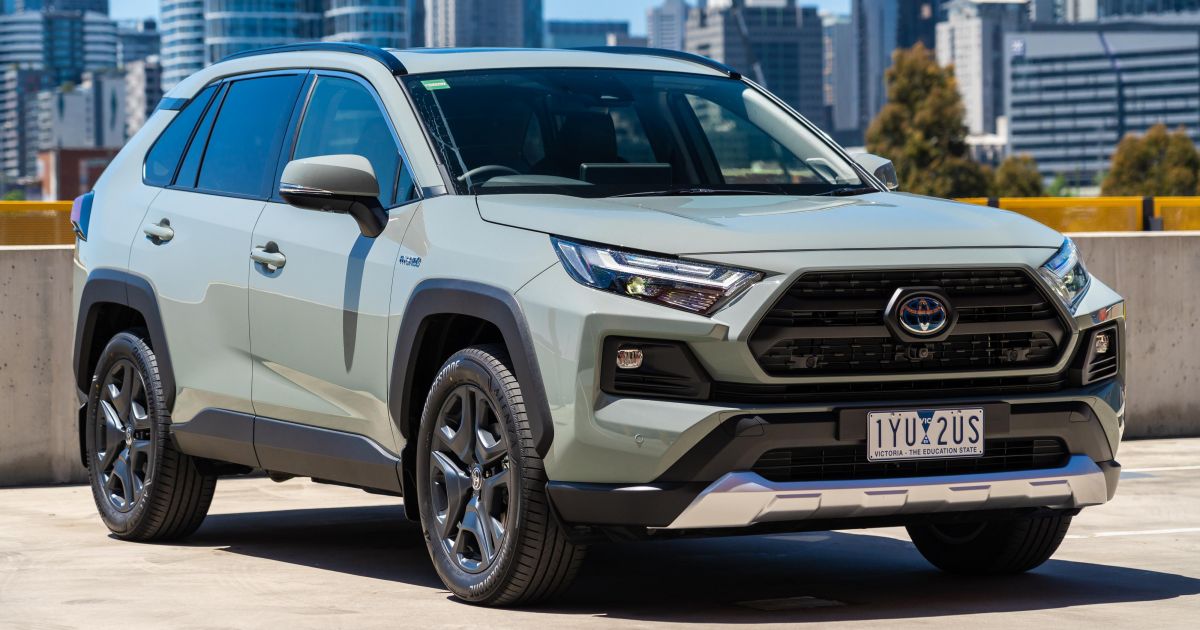
It’s spacious, well featured, nice to drive and as a hybrid offers benchmark fuel efficiency. Even several years on from this generation’s initial launch, it remains a segment leader.
However, the game is quickly changing and there’s more rivals on the way; numerous price rises have taken some of the RAV4’s shine, and the likes of the excellent new Honda CR-V e:HEV prove that electrified motoring can be proper fun – even in an SUV.
In 2024 we’ll see the launch of the Hyundai Tucson Hybrid and Kia Sportage Hybrid, both already excellent offerings in ICE form, and should serve as worthy competition in the electrified space. This top-spec RAV4 Edge Hybrid isn’t all that much cheaper than a base Tesla Model Y (from $65,400), either.
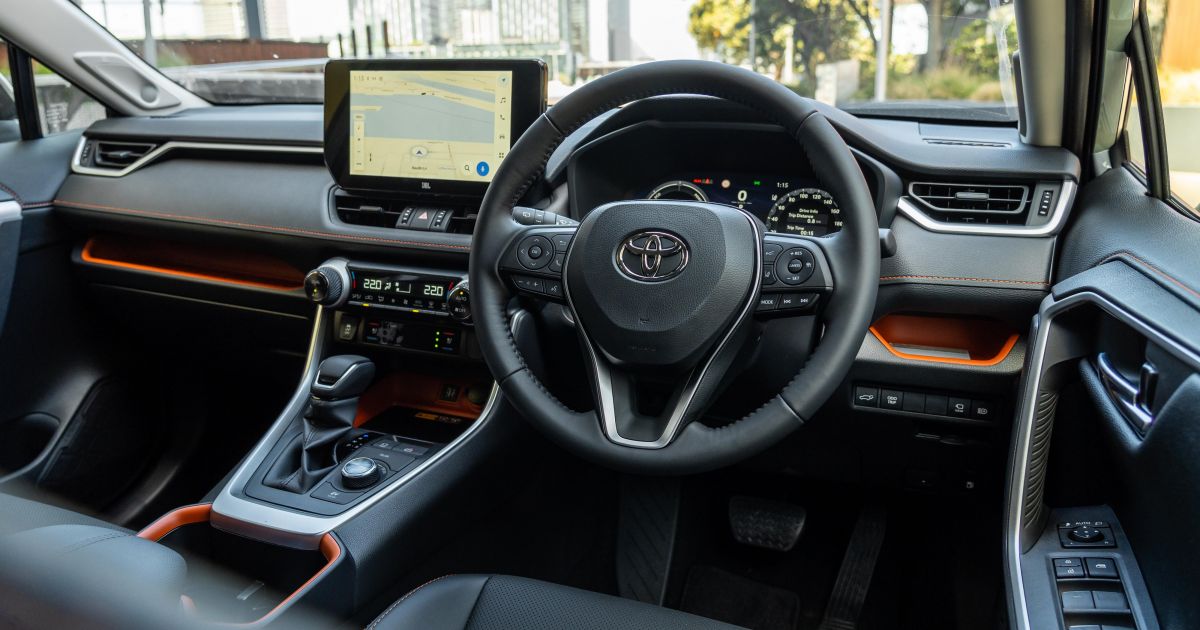
Lengthy wait times are another irk; though, this will apparently be addressed in the new year thanks to a big batch of RAV4 Hybrids due to land in the early stages of 2024. Read more about that here.
The RAV4 Hybrid is a great car for families and singles alike, but I’d also say the Edge probably doesn’t make the most of your spend.
You can save almost $10,000 and get into the XSE 2WD Hybrid. This gets most of the good stuff – the 2WD Hybrid is also more efficient; though, you can get the E-Four version for a few grand more if you need the all-paw traction.
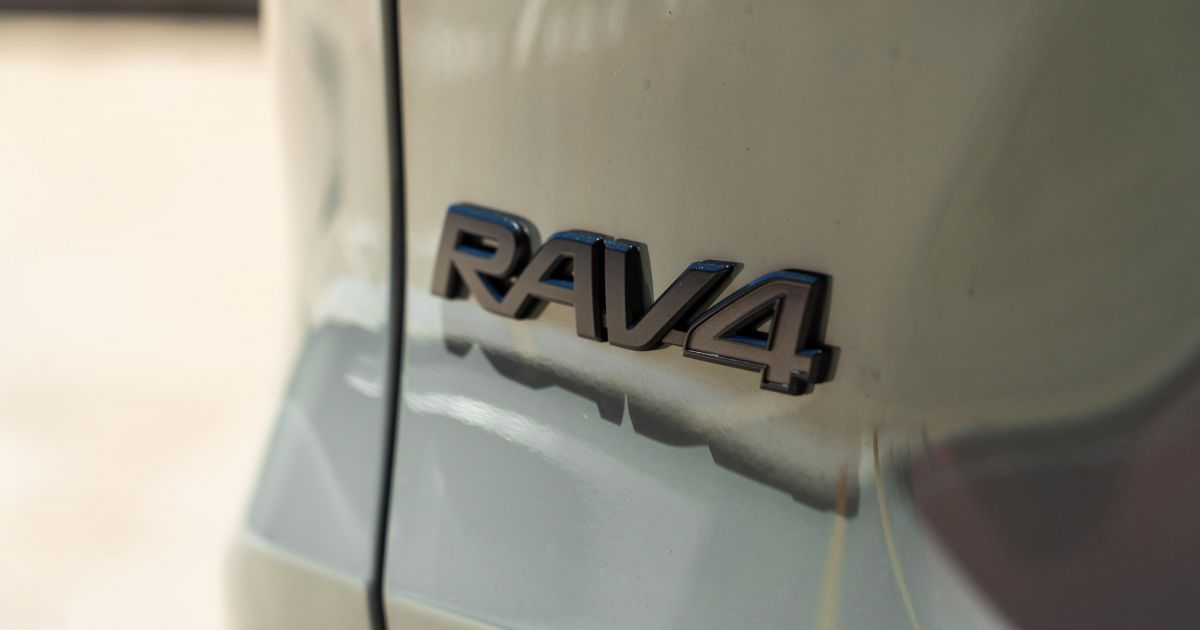
Click the images for the full gallery
BUY: Toyota RAV4
MORE: Everything Toyota RAV4


